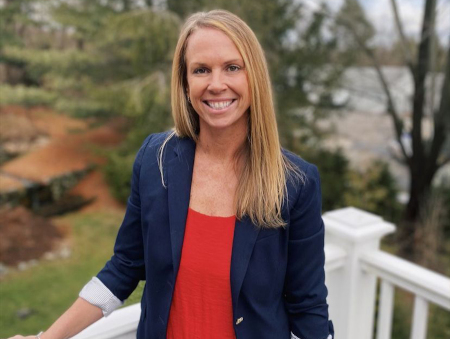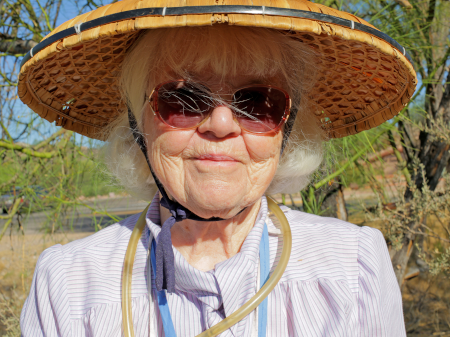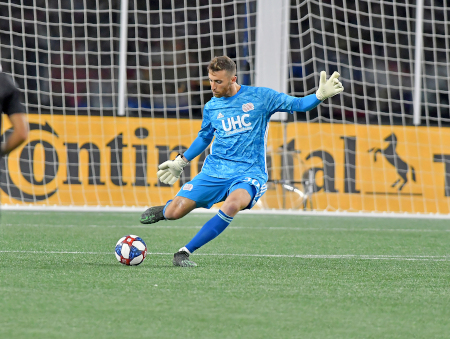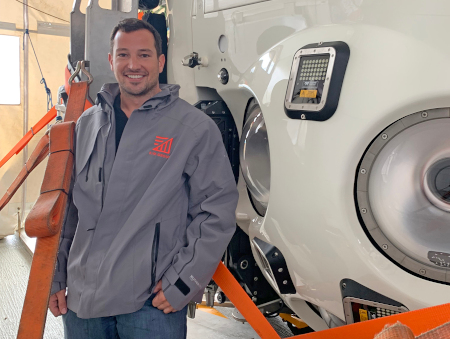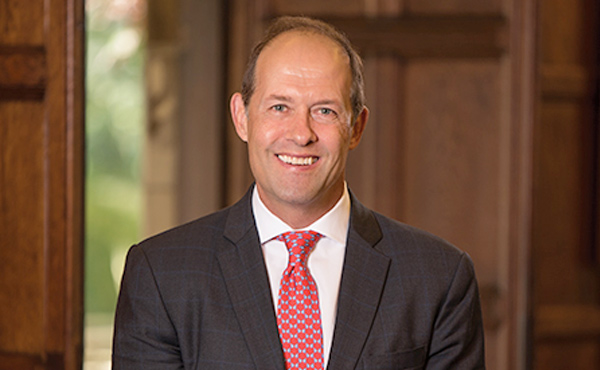CFO in an Industry Devastated by the Pandemic
The deep-rooted relationship between the people working in our restaurants and the communities around them has gotten even stronger.
— Jodi Sommers '97
Raised by a hard-working single mom on the eastern shore of Long Island, N.Y., Jody (Kertyzak) Sommers ’97 is a self-described “numbers person” who chose to study accounting because she liked that “it’s black and white; it makes sense.”
She was recruited on campus by Deloitte for her first job, after which she spent 16 years at Glencore, the world’s largest commodities trading company.
In 2017, Sommers made the leap into the tumultuous restaurant industry: “It was scary, but also a challenge I was 100 percent ready for,” she said.
At Barteca, a group of 30 or so Bar Taco and Barcelona restaurants, Sommers and her team oversaw everything “from soup to nuts” — payroll, taxes, cash flow — with no outsourcing. Just as she was getting her footing, the restaurant group was sold; she stayed on a year to help with the transition, leaving in July 2019.
One short month later, after a series of shake-ups that involved yet another sale and a reorganization, Sommers was brought back as CFO of the newly independent and privately held Barcelona restaurant group.
“It was a wild ride,” she recalled of the hectic weeks spent rehiring her finance team, setting up accounting and payroll system in a new Westport, Conn. office, and getting the 18 Barcelona restaurants — across 9 states and Washington, D.C. — back on track after being derailed by “too much noise upstairs.”
By early 2020, the individual restaurants were re-focused fully on the customer experience and the results were nothing short of amazing. “We were bringing in eight or nine percent more business than in the prior year,” Sommers noted, “which is huge by full-service restaurant industry standards.”
Little did she know that as the company’s ownership ups and downs were stabilizing, an unthinkable new global health threat was on the horizon.
Around the second week of March 2020, emails about state-mandated restrictions due to the Covid-19 pandemic began pouring into Sommers’ inbox, raising unforeseeable questions: No indoor dining? Is this going to hit every state? How long will the shutdowns last?
“As CFO, I had to take things head-on,” said Sommers. When sales plummeted, 90 percent of Barcelona’s employees had to be laid off. “Restaurants have such small margins, and labor is the biggest expense; we needed to get labor costs in check as quickly as possible.”
Sommers leaned heavily on the remaining restaurant workers — a few managers and chefs in each location — to stay on top of regional developments. As Spanish tapas restaurants with an emphasis on the in-person experience, “we didn’t really do take-out before the pandemic,” she said. But when news broke that some jurisdictions were allowing meals “to go,” they seized the opportunity to streamline the menu and create a brand-new visually appealing website with a contactless payment platform for online orders.
Barcelona’s take-out earnings rose from a pre-pandemic average of $7,000-a-week (across all 18 restaurants) to $125,000-a-week between April and June 2020. “Not our normal revenues by any stretch,” said Sommers, “but the numbers show how quickly our teams were able to come up to speed and run with the new processes.”
Once states began permitting outdoor dining and indoor dining at reduced capacity, “we hired back a tremendous number of workers as quickly as we could,” Sommers reported. But new questions arose: Are employees going to feel comfortable working in a restaurant? Are patrons going to want to eat here?
To address these concerns, Barcelona put “a massive focus” on safety protocols: wearing masks 24/7 in the workplace, keeping a safe distance, wearing gloves. New “sanitation ambassadors” were assigned at each location, and a third-party was brought in to oversee employee health screenings.
Restaurant teams set up patio heaters and took advantage of loosened city ordinances to create outdoor “streateries” and “parklets” for al fresco dining. “The patio sales really helped us,” said Sommers. “Who doesn’t love to sit and eat outside on a beautiful day?”
Extended outdoor dining is one innovation Sommers hopes will continue long after the pandemic. Another is the company’s new employee relief fund. “A lot of restaurant workers live week-to-week,” she explained, “and this is something we’ll have when disaster hits and people who have worked for us for many years find themselves in a bad situation.”
In an industry devastated by the pandemic, Sommers is most grateful for those who have rallied in support: “The deep-rooted relationship between the people working in our restaurants and the communities around them has gotten even stronger. All of the giving that has happened, at a time when nobody was really thriving... it has been truly heartwarming.
